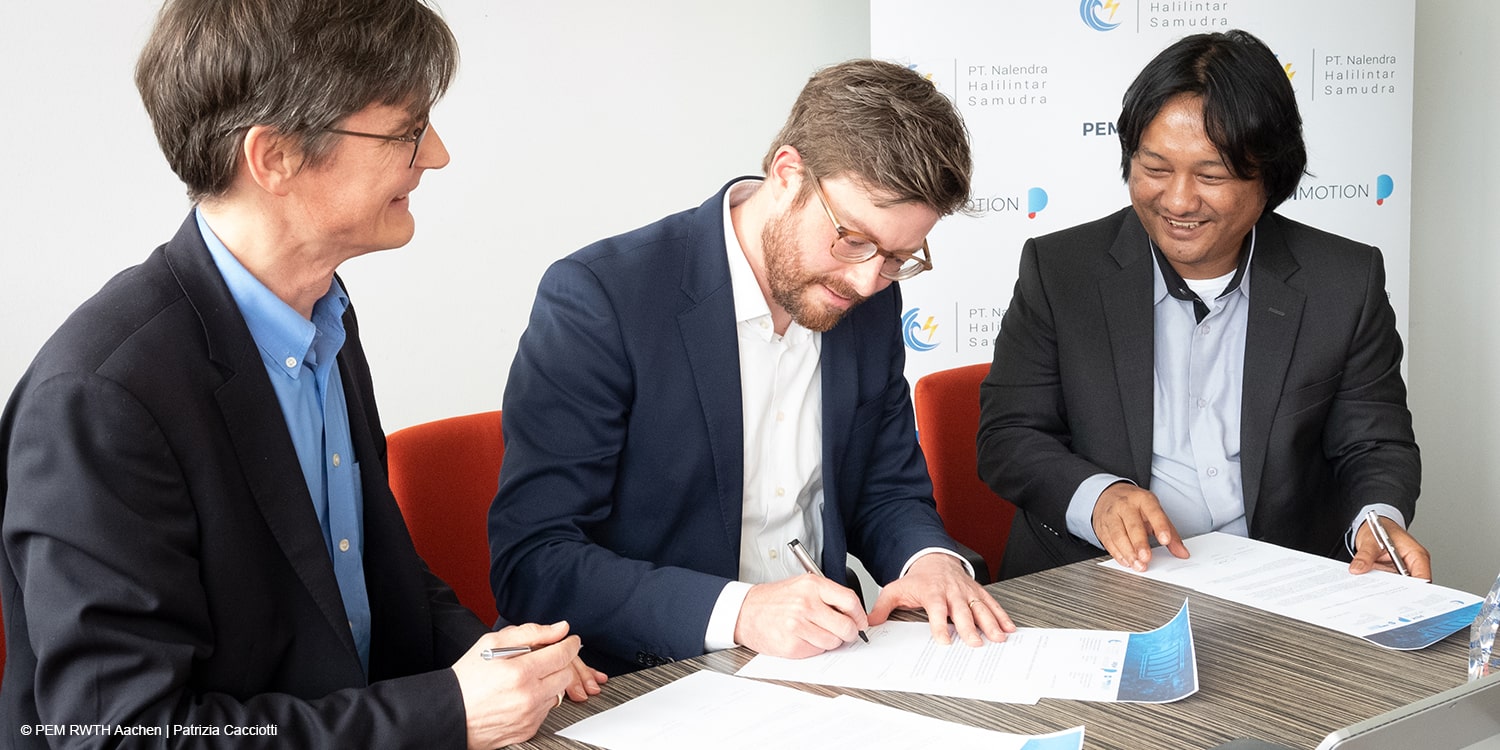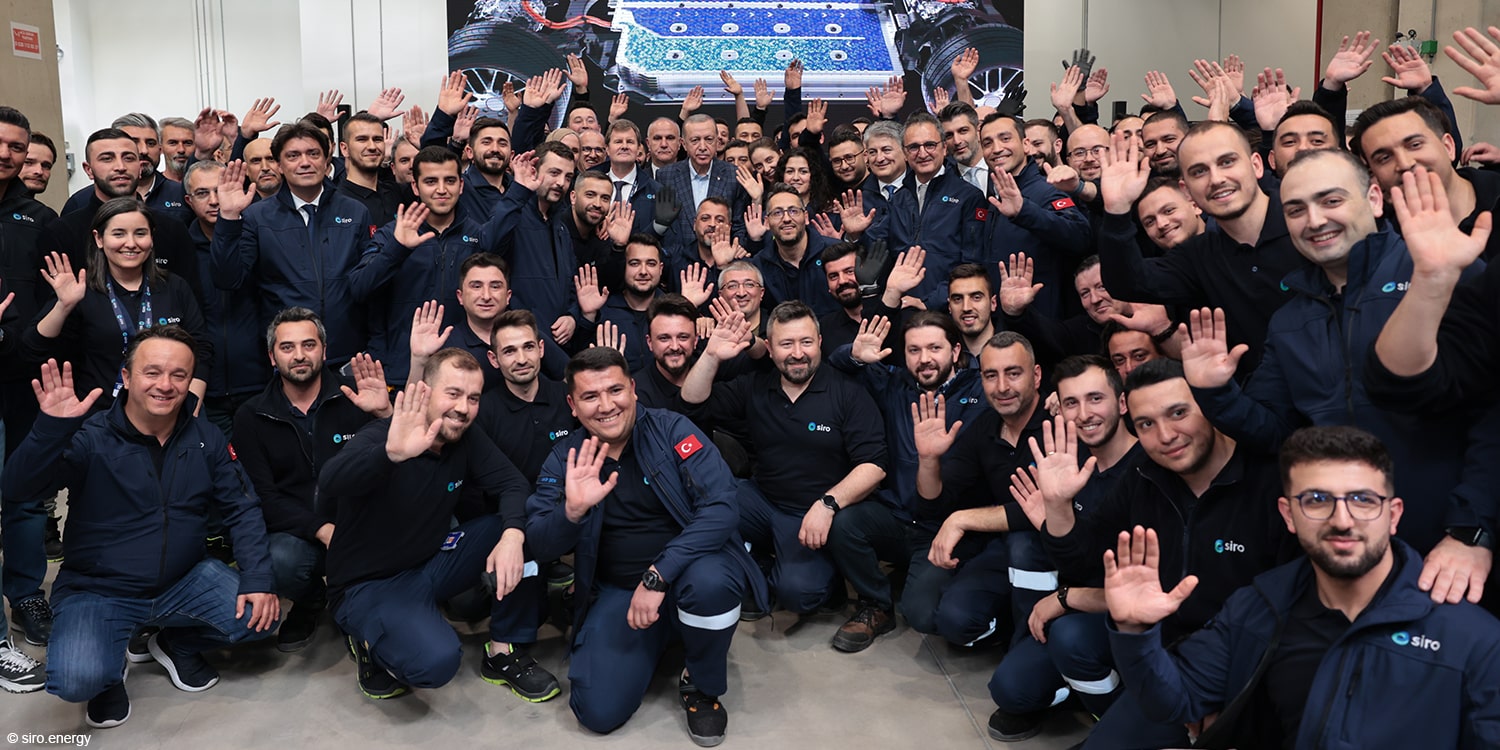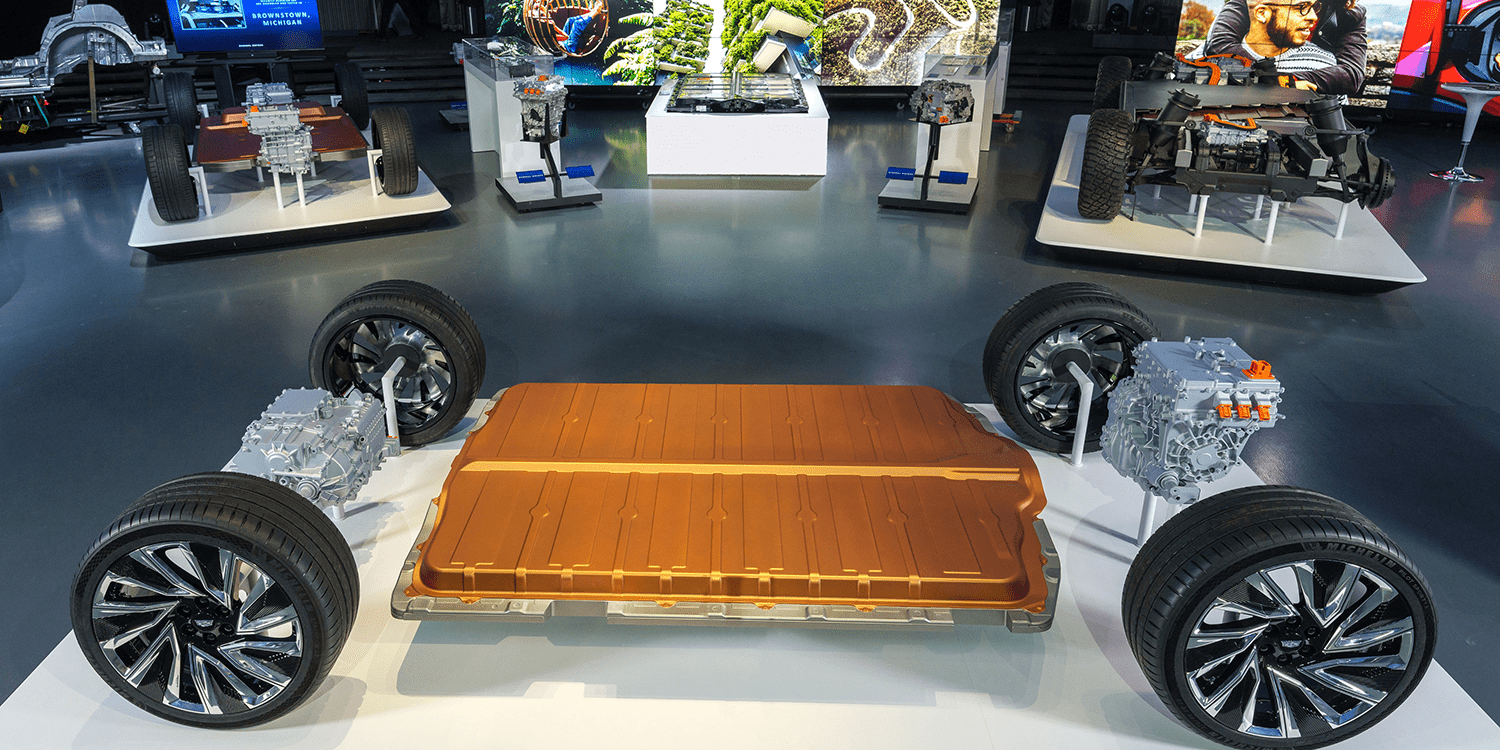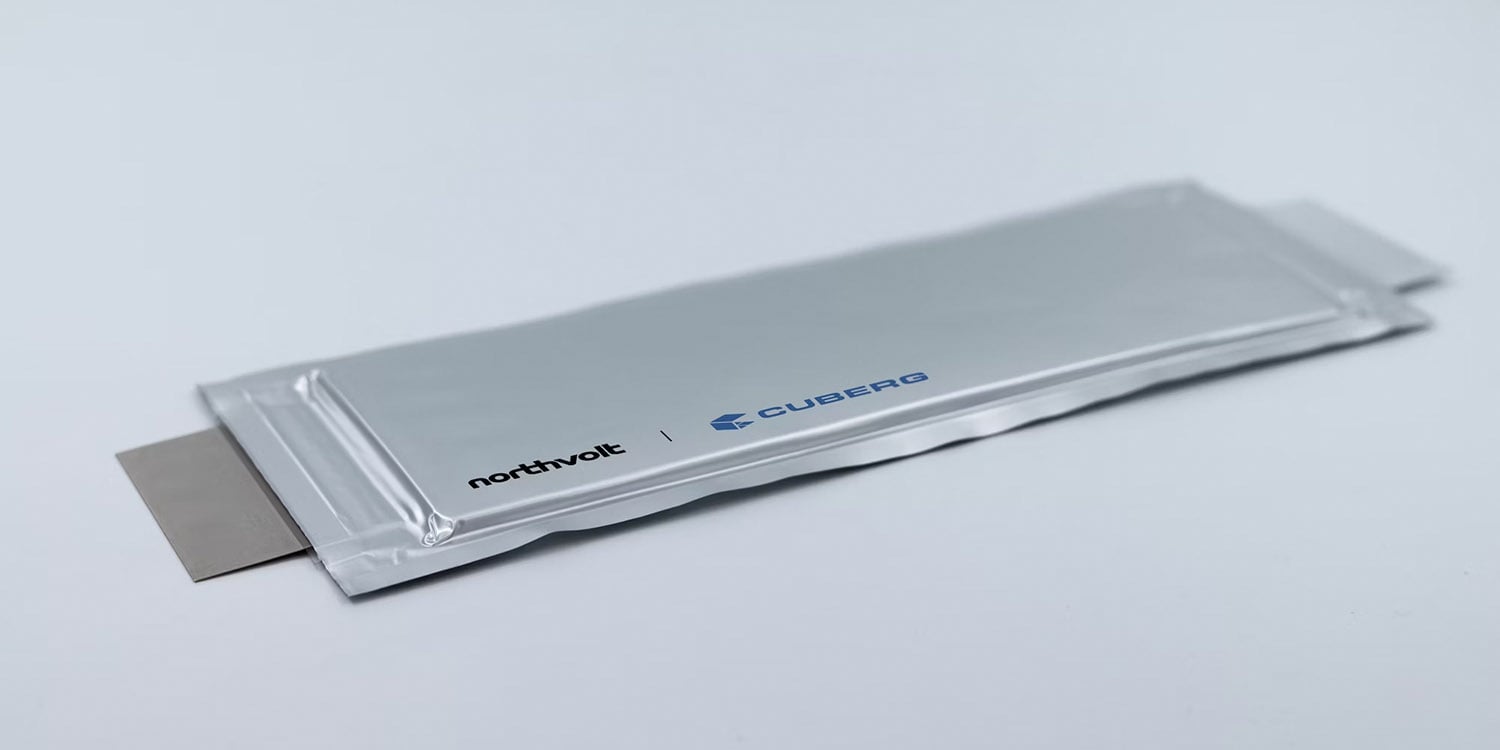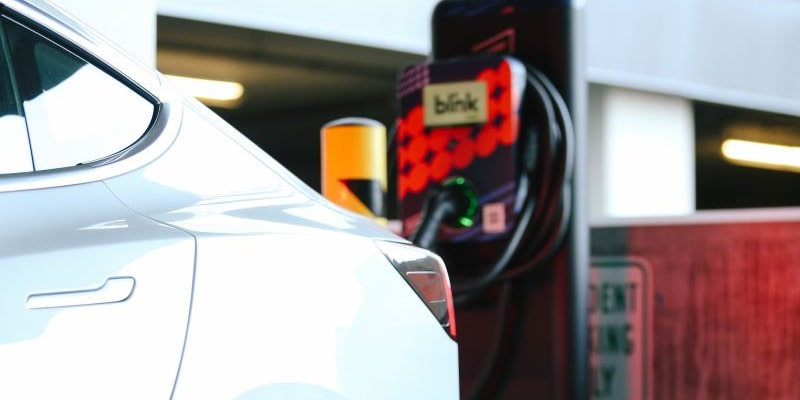Indonesia, with the world’s largest nickel reserves, has been trying to advance the mining of the crucial battery material and establish further processing steps, up to the finished battery cell and ready-to-drive electric car, in the country. The Chair of Production Engineering of E-Mobility Components (PEM) at RWTH Aachen University is now involved in this endeavour. The chair is working towards establishing a battery industry and electrifying public transport in Indonesia, while also collaborating with local companies for projects involving electrically-powered scooters, cars, and buses.
PEM Motion, a spin-off from RWTH, has entered into a cooperation with the Indonesian company NHS, which has been approved by the Indonesian government. The two companies will work together on battery production projects, and create a business model for an electric vehicle. They will also undertake research and education activities to develop specialists for new job profiles and business areas.
See also: German Consortium Developing Fuel Cell-Based Conversion Kit for Commercial Vehicles
According to Christoph Deutskens, CEO of PEM Motion, the combination of local resources and a fast-growing market on the one hand and technology know-how on the other, is a strong basis for the sustainable development of electric mobility in Southeast Asia. Hendrawan Hendrawan, NHS Chair, says that they are currently looking for opportunities for local solutions to meet the growing demand as Indonesia plans to electrify public transportation.
The chair also plans to conduct global research projects with university partners in both countries, which could flank future projects between NHS and PEM Motion. Achim Kampker, founder and head of the RWTH Chair PEM, believes that the education and training of specialists for new job profiles and new business areas will play a decisive role in the transition to electric mobility, and that universities can support this with comprehensive qualification programs.
See also: German tuning company turns BMW i4 into electric police car
The establishment of a battery industry and electrification of public transport in Indonesia will not only benefit the country but also contribute towards achieving global sustainability goals. With this collaboration, the chair hopes to establish a complete value chain from the battery to the complete vehicle directly on site in Indonesia, and provide an impetus for the development of electric mobility in Southeast Asia.

